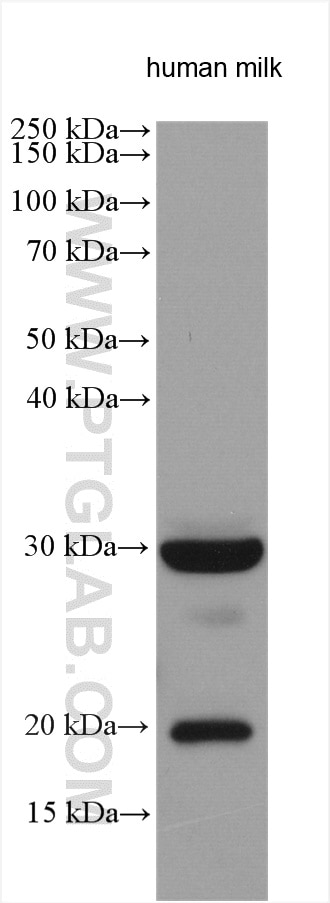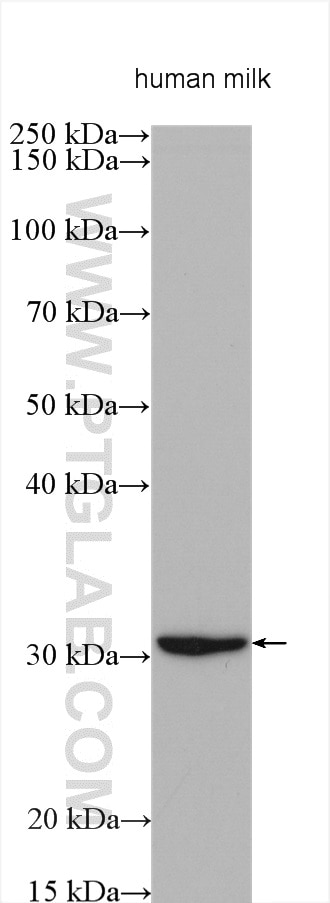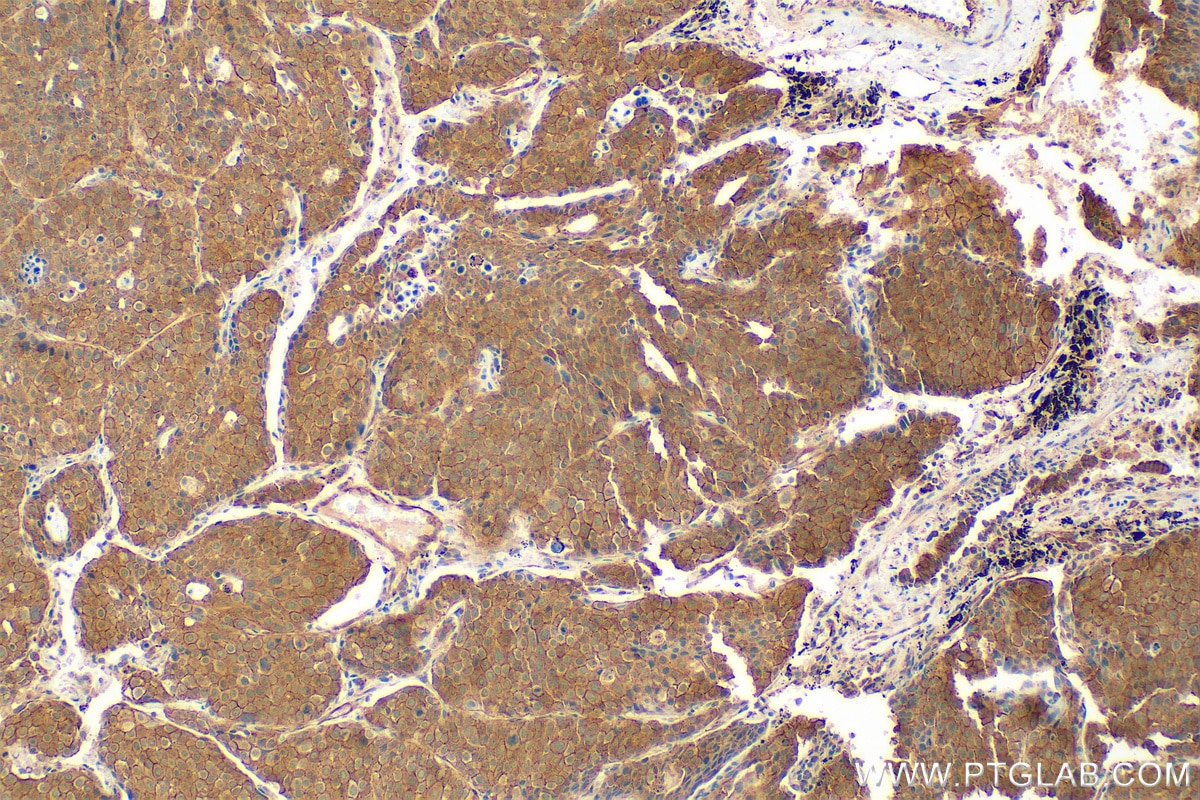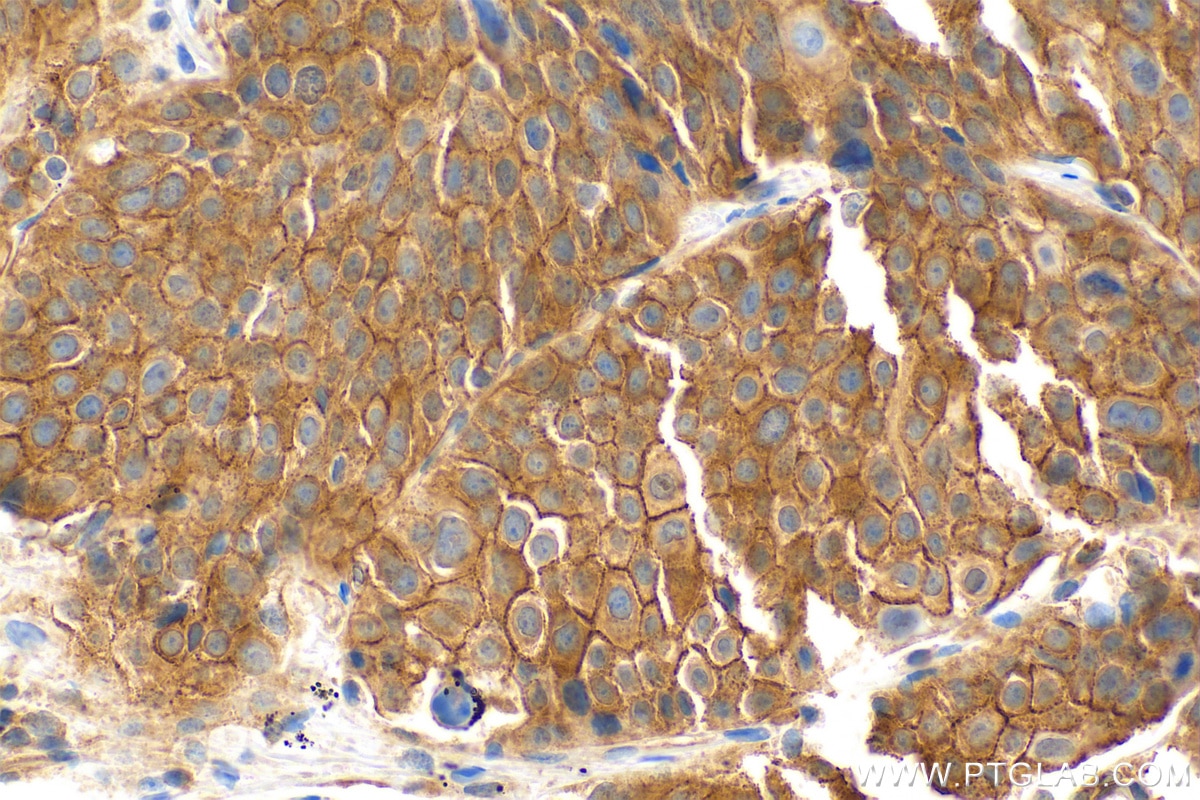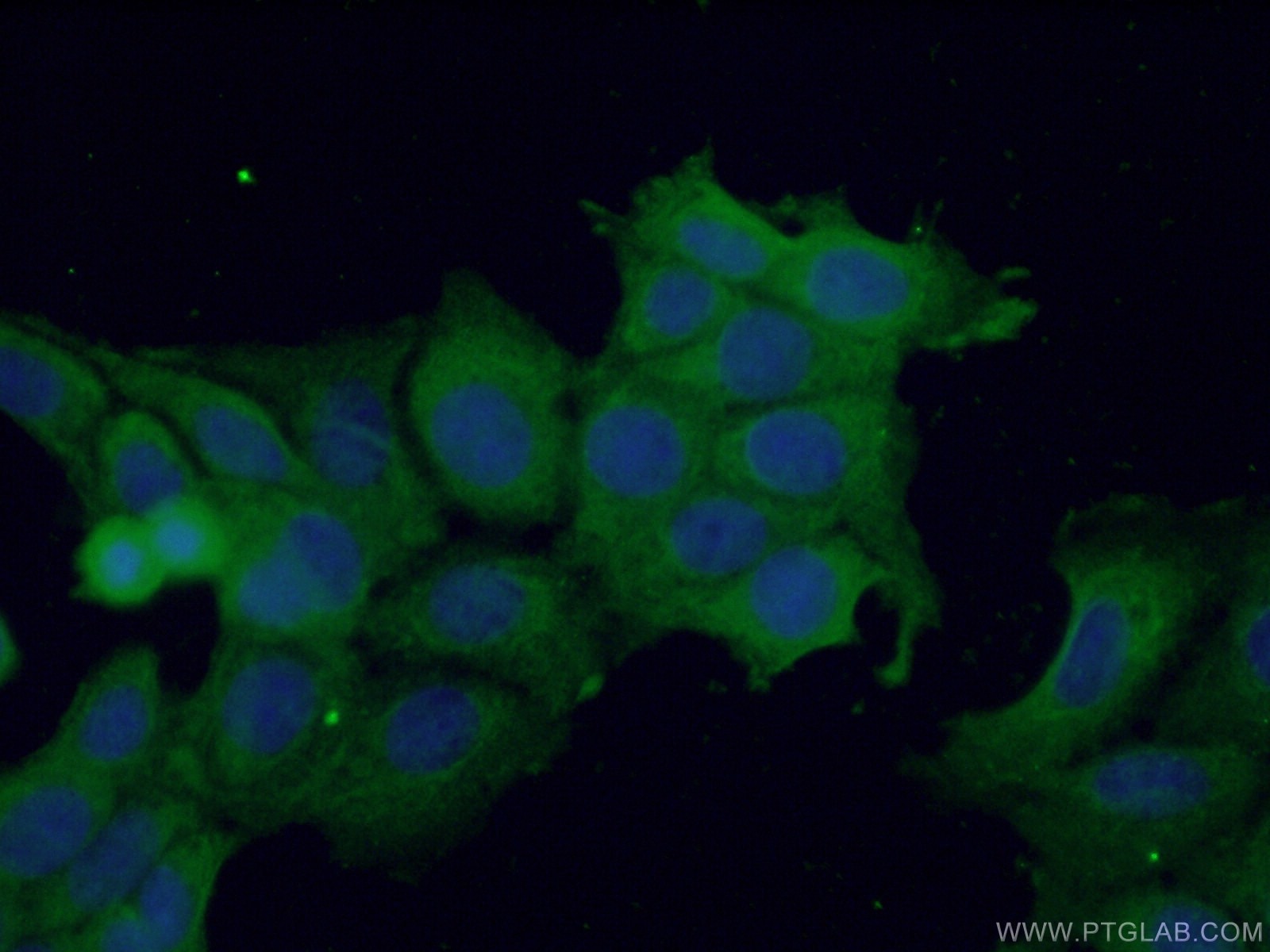Product Information
27064-1-PBS targets TRAIL/CD253 in WB, IHC, IF/ICC, ELISA applications and shows reactivity with human samples.
| Tested Reactivity | human |
| Host / Isotype | Rabbit / IgG |
| Class | Polyclonal |
| Type | Antibody |
| Immunogen |
CatNo: Ag25746 Product name: Recombinant human TRAIL protein Source: e coli.-derived, PGEX-4T Tag: GST Domain: 39-281 aa of BC032722 Sequence: TNELKQMQDKYSKSGIACFLKEDDSYWDPNDEESMNSPCWQVKWQLRQLVRKMILRTSEETISTVQEKQQNISPLVRERGPQRVAAHITGTRGRSNTLSSPNSKNEKALGRKINSWESSRSGHSFLSNLHLRNGELVIHEKGFYYIYSQTYFRFQEEIKENTKNDKQMVQYIYKYTSYPDPILLMKSARNSCWSKDAEYGLYSIYQGGIFELKENDRIFVSVTNEHLIDMDHEASFFGAFLVG Predict reactive species |
| Full Name | tumor necrosis factor (ligand) superfamily, member 10 |
| Calculated Molecular Weight | 281 aa, 33 kDa |
| Observed Molecular Weight | 33 kDa, 20 kDa |
| GenBank Accession Number | BC032722 |
| Gene Symbol | TRAIL |
| Gene ID (NCBI) | 8743 |
| RRID | AB_2880737 |
| Conjugate | Unconjugated |
| Form | Liquid |
| Purification Method | Antigen affinity purification |
| UNIPROT ID | P50591 |
| Storage Buffer | PBS only, pH 7.3. |
| Storage Conditions | Store at -80°C. |
Background Information
TRAIL, also known as CD253 or TNFSF10 (tumor necrosis factor superfamily member 10), is a typical death ligand expressed on natural killer cells and cytotoxic T lymphocytes. This protein preferentially induces apoptosis in transformed and tumor cells, but does not appear to kill normal cells although it is expressed at a significant level in most normal tissues. TRAIL induces apoptotic cell death in cancer by binding to its functional death receptors, death receptor (DR) 4 (TNFRSF10A/TRAIL-R1) and DR5 (TNFRSF10B/TRAIL-R2) to activate the extrinsic apoptosis pathway. TRAIL also activates c-Jun N-terminal kinase (MAPK8/JNK) and the transcription factor nuclear factor-κB (NFκB). The binding of this protein to its receptors has been shown to trigger the activation of MAPK8/JNK, caspase 8, and caspase 3.

